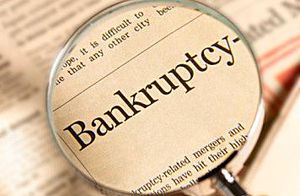The New Investor’s Complete Guide to Brokers
How to Get Started with Brokers, Brokerage Accounts, and Brokerage Firms
The broker and brokerage firm are the two primary relationships you will have when you begin your journey to investing, whether it’s a stock broker, commodities broker, future broker, bond broker, or an all purpose brokerage firm. This broker guide for new investors explains some of the things you need to look for when selecting a brokerage firm, fees to avoid, an explanation of asset management accounts, how to read your brokerage account statements and trade confirmations, and more. It’s part of our guide to investing in stocks.
-
-
01
Understanding Your Brokerage Account and Statement
••• The best way to start investing is to open a brokerage account with a well-respected stock broker. Here, we’ll explain how commissions work, what is considered “reasonable”, and what you should expect. Learn how a brokerage account works…
-
-
-
02
How To Read Your Stock Broker Trade Confirmations
••• Whenever you buy or sell an investment through your brokerage account, you are going to receive a special document called a trade confirmation from your stock broker. It’s important to check a handful of items on each and every trade confirmation you receive – errors can occur, and if you don’t check your confirmation, you could end up losing a lot of money. Find out what to check on your brokerage confirmation reports…
-
-
-
03
How Do I Choose a Stock Broker or Brokerage Account?
Now that you know the basics of how brokerage accounts work and why trade confirmations are important, it’s time for you to set out to find your own, personal stock broker. There are two types of stock brokers in the world – full-service stock brokers and discount stock brokers. They each have pros and cons. How do you know which one is right for you? Here are some things to consider…
-
-
04
What’s So Special About Full Service Stock Brokers and Brokerage Firms?
With their mahogany-paneled walls, gourmet coffee, and tailored stock recommendations, full-service stock brokers can cost a lot of money through higher fees, service charges, commissions, and more. Despite their expensive prices, in some cases, their research and planning help is worth every penny. Just what services do full-service brokers and full-service brokerage firms offer? Find out here in this list…
-
05
Are There Any Fees I Should Refuse to Pay My Stock Broker?
There are a few fees that are so outrageous, yet common among some stock brokers, brokerage firms, and banks that you absolutely must know about them. Take a minute to educate yourself and if you find your accounts with a broker that insists on charging them, take your business elsewhere. They are going to nickel and dime you for every penny you have to your name. Learn what these ridiculous charges are called…
-
06
Can I Buy Stocks Without a Stock Broker?
If you want to buy stock in a specific company, it may be possible for you to invest without a stock broker, brokerage firm, or brokerage account! Though it’s likely you’ll never hear talk about them on Wall Street, there is a special type of low-cost program you can join called “direct stock purchase plans”. Find out how direct stock purchase plans work and how to join them…
-
07
My Stock Broker Offered Me an Asset Management Account. What Is It?
Many stock brokers and brokerage firms are doing away with the traditional brokerage account entirely and introducing something new called the asset management account. It may sound fancy, but if you hate paperwork, want everything in your life to come on one statement, and would rather pay a flat, small percentage of your account value instead of regular commissions, an asset management account may be a better choice for you. Check out more details about asset management accounts…
-
08
My Broker Told Me All of My Stocks are Held in a Street Name. Is This Bad?
If you invest through a broker, brokerage firm, or bank, the odds are 99 to 1 that your stocks, bonds, mutual funds, and other assets are held in a street name, not your own name. What does that mean? Is it bad? Find the answer here…
-
09
If My Broker Goes Bankrupt, Do I Lose All of My Money?
About once every decade, you see a host of brokers, brokerage firms, and banks fail and descend into bankruptcy protection. What happens if you held your investments, such as stocks, bonds, mutual funds, or retirement accounts, through a brokerage firm that went bankrupt? Will you lose all of the money you had invested with your stock broker? Learn the answer to this question…
-
10
Can I Sue My Stock Broker If I Lose Money?
An investor contacted me, wanting to know if he could sue his parent’s stock broker and the brokerage firm itself for a 35% drop in portfolio value. Do you know the answer? If not, take a moment to educate yourself and learn a valuable lesson. Here is a copy of the email I sent back to him…
-
11
Guide to Stock Trading
Now that you’ve chosen a stock broker, you need to learn how to actually begin trading stocks within your brokerage account. This beginner’s guide to online stock trading will walk you through the twelve types of stock trades you can make, selecting individual stocks, ways to uncover hidden fees, expenses, and commissions, and much more. Think of it as your ultimate reference guide to stock trading. Start learning how to trade stocks…












